Islamism or Muslim Extremism is Muslim Zionism, Fascism, Neo Nazism, Globalism and Imperialism
Islamism or Muslim Extremism is Muslim Zionism, Fascism, Neo Nazism, Globalism and Imperialism
Islamism (Islam+-ism) or Political Islam (Arabic: إسلام سياسي Islām siyāsī, or الإسلامية al-Islāmīyah) is a set of ideologies holding that “Islam should guide social and political as well as personal life”.[1] Islamism is a controversial neologism, and definitions of it sometimes vary (see below). Leading Islamist thinkers emphasize the implementation of Sharia (Islamic law); of pan-Islamic political unity; and of the selective removal of non-Muslim, particularly Western military, economic, political, social, or cultural influences in the Muslim world that they believe to be incompatible with Islam.[2] Some observers suggest Islamism’s tenets are less strict, and can be defined as a form of identity politics or “support for [Muslim] identity, authenticity, broader regionalism, revivalism, [and] revitalization of the community”.[3] And following the Arab Spring political Islam has been described as “increasingly interdependent” with political democracy.[4]
Many of those described as “Islamists” oppose the use of the term, and claim that their political beliefs and goals are simply an expression of Islamic religious belief. Similarly, some experts favor the term activist Islam,[5][6] or political Islam,[7] and some have equated the term militant Islam with Islamism.[8]
Central and prominent figures of modern Islamism include Sayyid Qutb, Hasan al-Banna, Abul Ala Maududi,[9] and Ruhollah Khomeini,.[10] Other important figures who inspired various Islamist movement are Jamal-al-Din al-Afghani, Muhammad ‘Abduh, Rashid Rida, Muhammad Iqbal, Muhammad Asad, Said Nursî, Taqiuddin al-Nabhani, Ali Shariati, Navvab Safavi, Yusuf al-Qaradawi, and Rashid al-Ghannushi.
Islamists or Islamic Muslim Extremists are Muslim Zionist Thugs
Islamists or Islamic Muslim Extremists are Muslim Zionist Thugs
Islamism (Islam+-ism) or Political Islam (Arabic: إسلام سياسي Islām siyāsī, or الإسلامية al-Islāmīyah) is a set of ideologies holding that “Islam should guide social and political as well as personal life”.[1] Islamism is a controversial neologism, and definitions of it sometimes vary (see below). Leading Islamist thinkers emphasize the implementation of Sharia (Islamic law); of pan-Islamic political unity; and of the selective removal of non-Muslim, particularly Western military, economic, political, social, or cultural influences in the Muslim world that they believe to be incompatible with Islam.[2] Some observers suggest Islamism’s tenets are less strict, and can be defined as a form of identity politics or “support for [Muslim] identity, authenticity, broader regionalism, revivalism, [and] revitalization of the community”.[3] And following the Arab Spring political Islam has been described as “increasingly interdependent” with political democracy.[4]
Many of those described as “Islamists” oppose the use of the term, and claim that their political beliefs and goals are simply an expression of Islamic religious belief. Similarly, some experts favor the term activist Islam,[5][6] or political Islam,[7] and some have equated the term militant Islam with Islamism.[8]
Central and prominent figures of modern Islamism include Sayyid Qutb, Hasan al-Banna, Abul Ala Maududi,[9] and Ruhollah Khomeini,.[10] Other important figures who inspired various Islamist movement are Jamal-al-Din al-Afghani, Muhammad ‘Abduh, Rashid Rida, Muhammad Iqbal, Muhammad Asad, Said Nursî, Taqiuddin al-Nabhani, Ali Shariati, Navvab Safavi, Yusuf al-Qaradawi, and Rashid al-Ghannushi.
Taliban is a Muslim Zionist Globalist Imperialist CULT Group
Taliban is a Muslim Zionist Globalist Imperialist Group
The Taliban (Pashto: طالبان ṭālibān “students”), alternative spelling Taleban,[7] is an Islamic fundamentalist political movement in Afghanistan. It spread from Pakistan into Afghanistan and formed a government, ruling as the Islamic Emirate of Afghanistan from September 1996 until December 2001, with Kandahar as the capital. However, it gained diplomatic recognition from only three states: Pakistan, Saudi Arabia, and the United Arab Emirates. Mohammed Omar has been serving as the spiritual leader of the Taliban since 1994.[8]
While in power, it enforced its strict interpretation of Sharia law,[9] and leading Muslims have been highly critical of the Taliban’s interpretations of Islamic law.[10] The Taliban were condemned internationally for their brutal treatment of women.[11][12] The majority of the Taliban are made up of Pashtun tribesmen.[13][14] The Taliban’s leaders were influenced by Deobandi fundamentalism,[15] and many also strictly follow the social and cultural norm called Pashtunwali.[16]
From 1995 to 2001, the Pakistani Inter-Services Intelligence[17] and military[18] are widely alleged by the international community to have provided support to the Taliban. Their connections are possibly through Harkat-ul-Mujahideen, a terrorist group founded by Sami ul Haq.[19] Pakistan is accused by many international officials of continuing to support the Taliban; Pakistan states that it dropped all support for the group after 9/11.[20][21][22] Al Qaeda also supported the Taliban with regiments of imported fighters from Arab countries and Central Asia.[23][24][25] Saudi Arabia provided financial support.[26] The Taliban and their allies committed massacres against Afghan civilians,[27][28][29] denied UN food supplies to 160,000 starving civilians[30] and conducted a policy of scorched earth, burning vast areas of fertile land and destroying tens of thousands of homes during their rule from 1996 to 2001.[31][32] Hundreds of thousands of people were forced to flee to United Front-controlled territory, Pakistan, and Iran.[32]
After the attacks of September 11, 2001, the Taliban were overthrown by the American-led invasion of Afghanistan. Later it regrouped as an insurgency movement to fight the American-backed Karzai administration and the NATO-led International Security Assistance Force (ISAF).[33] The Taliban have been accused of using terrorism as a specific tactic to further their ideological and political goals.[34][35] According to the United Nations, the Taliban and their allies were responsible for 75% of Afghan civilian casualties in 2010, 80% in 2011, and 80% in 2012.[36][37][38] It is widely believed that the city of Quetta in Pakistan serves as Quetta Shura’s headquarter.
Al Qaeda is a Muslim Zionist Globalist Imperialist CULT Group
Al Qaeda is a Muslim Zionist Globalist Imperialist Group
Al-Qaeda (/ælˈkaɪdə/ al-KY-də; Arabic: القاعدة al-qāʿidah, Arabic: [ælqɑːʕɪdɐ], translation: “The Base” and alternatively spelled al-Qaida and sometimes al-Qa’ida) is a global militant Islamist organization founded by Osama bin Laden in Peshawar, Pakistan,[20] at some point between August 1988[21] and late 1989,[22] with its origins being traceable to the Soviet War in Afghanistan.[23] It operates as a network comprising both a multinational, stateless army[24] and a radical Sunni Muslim movement calling for global Jihad and a strict interpretation of sharia law. It has been designated as a terrorist organization by the United Nations Security Council, NATO, the European Union, the United Kingdom, the United States, India and various other countries (see below). Al-Qaeda has carried out many attacks on non-Sunni Muslims,[25] non-Muslims,[26][27] and other targets it considers kafir.[28]
Al-Qaeda has attacked civilian and military targets in various countries, including the September 11 attacks, 1998 U.S. embassy bombings and the 2002 Bali bombings. The U.S. government responded to the September 11 attacks by launching the War on Terror. With the loss of key leaders, culminating in the death of Osama bin Laden, al-Qaeda’s operations have devolved from actions that were controlled from the top-down, to actions by franchise associated groups, to actions of lone wolf operators.
Characteristic techniques employed by al-Qaeda include suicide attacks and simultaneous bombings of different targets.[29] Activities ascribed to it may involve members of the movement, who have taken a pledge of loyalty to Osama bin Laden, or the much more numerous “al-Qaeda-linked” individuals who have undergone training in one of its camps in Afghanistan, Pakistan, Iraq or Sudan, but who have not taken any pledge.[30] Al-Qaeda ideologues envision a complete break from all foreign influences in Muslim countries, and the creation of a new world-wide Islamic caliphate.[3][31][32] Among the beliefs ascribed to Al-Qaeda members is the conviction that a Christian–Jewish alliance is conspiring to destroy Islam.[33] As Salafist jihadists, they believe that the killing of civilians is religiously sanctioned, and they ignore any aspect of religious scripture which might be interpreted as forbidding the murder of civilians and internecine fighting.[9][34] Al-Qaeda also opposes man-made laws, and wants to replace them with a strict form of sharia law.[35]
Al-Qaeda is also responsible for instigating sectarian violence among Muslims.[36] Al-Qaeda is intolerant of non-Sunni branches of Islam and denounces them by means of excommunications called “takfir“. Al-Qaeda leaders regard liberal Muslims, Shias, Sufis and other sects as heretics and have attacked their mosques and gatherings.[37] Examples of sectarian attacks include the Yazidi community bombings, the Sadr City bombings, the Ashoura Massacre and the April 2007 Baghdad bombings.[38]
Jemaah Islamiah is a Muslim Fascist Neo Nazi Group
Jemaah Islamiah is a Muslim Fascist Neo Nazi Group
Jemaah Islamiah [1] (Arabic: الجماعة الإسلامية, al-Jamāʿat ul-Islāmíyatu, meaning “Islamic Congregation”, frequently abbreviated JI),[2] is a Southeast Asian militant Islamist terrorist organization dedicated to the establishment of a Daulah Islamiyah (regional Islamic caliphate) in Southeast Asia.[3][4] On 25 October, 2002, immediately following the JI perpetrated Bali bombing, JI was added to the UN Security Council Resolution 1267 as a terrorist organization linked to al-Qaeda or the Taliban.[5]
JI is a transnational organization with cells in Thailand, Singapore, Malaysia and the Philippines.[6] In addition to al-Qaeda the group is also thought to have links to the Moro Islamic Liberation Front[6] and Jamaah Ansharut Tauhid, a splinter cell of the JI which was formed by Abu Bakar Baasyir on 27 July 2008 and was later also added to the U.S. State Department’s list of terrorist organizations.[7] It remained very active in Indonesia where it publicly maintained a website as of January 2013.[8]
JI has its roots in Darul Islam (DI, meaning “House of Islam”), a radical Islamist/anti-colonialist movement in Indonesia in the 1940s.[9]
The JI was established as a loose confederation of several Islamic groups. Sometime around 1969, three men, Abu Bakar Bashir, Abdullah Sungkar and Shahrul Nizam ‘PD’ began an operation to propagate the Darul Islam movement, a conservative strain of Islam.
Bashir and Sungkar were both imprisoned by the New Order administration of Indonesian president Suharto as part of a crackdown on radical groups such as Komando Jihad, that were perceived to undermine the government’s control over the Indonesian population. The two leaders spent several years in prison. After release, Bashir and his followers moved to Malaysia in 1982. They recruited people from Indonesia, Malaysia, Singapore, and the Philippines. The group officially named itself Jemaah Islamiah around that time period.
JI was formally founded on January 1, 1993, by JI leaders, Abu Bakar Bashir and Abdullah Sungkar[10] while hiding in Malaysia from the persecution of the Suharto government.[11] After the fall of the Suharto regime in 1998, both men returned to Indonesia[12] where JI gained a terrorist edge when one of its founders, the late Abdullah Sungkar, established contact with Osama Bin Laden’s al-Qaeda network.[13]
JI’s violent operations began during the communal conflicts in Maluku and Poso.[14] It shifted its attention to targeting US and Western interests in Indonesia and the wider Southeast Asian region[15] since the start of the US-led war on terror. JI’s terror plans in Southeast Asia were exposed when its plot to set off several bombs in Singapore was foiled by the local authorities.
Recruiting, training, indoctrination, financial, and operational links between the JI and other militant groups,[16] such as al-Qaeda, the Abu Sayyaf Group (ASG), the Moro Islamic Liberation Front (MILF), the Misuari Renegade/Breakaway Group (MRG/MBG) and the Philippine Rajah Sulaiman movement (RSM) have existed for many years, and continue to this day(December, 2003).[17]
Bashir became the spiritual leader of the organization while Hambali became the military leader. Unlike the Al-Mau’nah group, Jemaah Islamiah kept a low profile in Malaysia and their existence was publicized only after the 2002 Bali bombings.
2002 Bali bombing
Prior to the first Bali bombing on October 12, 2002, there was underestimation to the threat Jemaah Islamiah posed.[18] After this attack, the U.S. State Department designated Jemaah Islamiah as a Foreign Terrorist Organization.[19]
Other terrorist attacks
In 2003 Indonesian police confirmed “the existence of Mantiqe IV ‘-the JI regional cell” which covers Irian Jaya and Australia”. Indonesian police says Muklas has identified Mantiqe IV’s leader as Abdul Rahim—an Indonesian-born Australian.[citation needed] Jemaah Islamiah is also strongly suspected of carrying out the 2003 JW Marriott hotel bombing in Kuningan, Jakarta, the 2004 Australian embassy bombing in Jakarta, the 2005 Bali terrorist bombing which through the use of underground-positioned “micro-nukes” and the 2009 JW Marriott and Ritz-Carlton hotel bombings. The Bali and JW Marriott attacks showed that JI did not rule out attacking the same target more than once. The JI also has been directly and indirectly involved in dozens of bombings in the southern Philippines, usually in league with the ASG.[citation needed]
However, most of Jemaah Islamiah prominent figures such as Hambali, Abu Dujana, Azahari Husin, Noordin Top and Dulmatin have either been captured or killed, mostly by Indonesian anti-terrorist squad, Detachment 88.[citation needed] While several of its former leaders, including Malaysian jihadist and Afghanistan War veteran Nasir Abbas, have renounced violence and even assisted the Indonesian and Malaysian governments in the war on terrorism. Nasir Abbas was Noordin Top’s former superior.[citation needed]
Indonesian investigators revealed the JI’s establishment of an assassination squad in April 2007, which was established to target top leaders who oppose the group’s objectives, as well as other officials, including police officers, government prosecutors and judges handling terrorism-related cases.[20]
In April 2008, the South Jakarta District Court declared JI an illegal organisation when sentencing former leader Zarkasih and military commander Abu Dujana to 15 years on terrorism charges.[21]
In 2010 Indonesian authorities cracked down on the Jemaah Islamiah network in Aceh. Between February and May 2010, more than 60 militants were captured.[22] This Aceh network was established by Dulmatin sometime after 2007 when he returned to Indonesia.[23]
Jemaah Islamiah is a Muslim Gang and Criminal Group in Southeast Asia
Jemaah Islamiah is a Muslim Gang and Criminal Group in Southeast Asia
Jemaah Islamiah [1] (Arabic: الجماعة الإسلامية, al-Jamāʿat ul-Islāmíyatu, meaning “Islamic Congregation”, frequently abbreviated JI),[2] is a Southeast Asian militant Islamist terrorist organization dedicated to the establishment of a Daulah Islamiyah (regional Islamic caliphate) in Southeast Asia.[3][4] On 25 October, 2002, immediately following the JI perpetrated Bali bombing, JI was added to the UN Security Council Resolution 1267 as a terrorist organization linked to al-Qaeda or the Taliban.[5]
JI is a transnational organization with cells in Thailand, Singapore, Malaysia and the Philippines.[6] In addition to al-Qaeda the group is also thought to have links to the Moro Islamic Liberation Front[6] and Jamaah Ansharut Tauhid, a splinter cell of the JI which was formed by Abu Bakar Baasyir on 27 July 2008 and was later also added to the U.S. State Department’s list of terrorist organizations.[7] It remained very active in Indonesia where it publicly maintained a website as of January 2013.[8]
JI has its roots in Darul Islam (DI, meaning “House of Islam”), a radical Islamist/anti-colonialist movement in Indonesia in the 1940s.[9]
The JI was established as a loose confederation of several Islamic groups. Sometime around 1969, three men, Abu Bakar Bashir, Abdullah Sungkar and Shahrul Nizam ‘PD’ began an operation to propagate the Darul Islam movement, a conservative strain of Islam.
Bashir and Sungkar were both imprisoned by the New Order administration of Indonesian president Suharto as part of a crackdown on radical groups such as Komando Jihad, that were perceived to undermine the government’s control over the Indonesian population. The two leaders spent several years in prison. After release, Bashir and his followers moved to Malaysia in 1982. They recruited people from Indonesia, Malaysia, Singapore, and the Philippines. The group officially named itself Jemaah Islamiah around that time period.
JI was formally founded on January 1, 1993, by JI leaders, Abu Bakar Bashir and Abdullah Sungkar[10] while hiding in Malaysia from the persecution of the Suharto government.[11] After the fall of the Suharto regime in 1998, both men returned to Indonesia[12] where JI gained a terrorist edge when one of its founders, the late Abdullah Sungkar, established contact with Osama Bin Laden’s al-Qaeda network.[13]
JI’s violent operations began during the communal conflicts in Maluku and Poso.[14] It shifted its attention to targeting US and Western interests in Indonesia and the wider Southeast Asian region[15] since the start of the US-led war on terror. JI’s terror plans in Southeast Asia were exposed when its plot to set off several bombs in Singapore was foiled by the local authorities.
Recruiting, training, indoctrination, financial, and operational links between the JI and other militant groups,[16] such as al-Qaeda, the Abu Sayyaf Group (ASG), the Moro Islamic Liberation Front (MILF), the Misuari Renegade/Breakaway Group (MRG/MBG) and the Philippine Rajah Sulaiman movement (RSM) have existed for many years, and continue to this day(December, 2003).[17]
Bashir became the spiritual leader of the organization while Hambali became the military leader. Unlike the Al-Mau’nah group, Jemaah Islamiah kept a low profile in Malaysia and their existence was publicized only after the 2002 Bali bombings.
2002 Bali bombing
Prior to the first Bali bombing on October 12, 2002, there was underestimation to the threat Jemaah Islamiah posed.[18] After this attack, the U.S. State Department designated Jemaah Islamiah as a Foreign Terrorist Organization.[19]
Other terrorist attacks
In 2003 Indonesian police confirmed “the existence of Mantiqe IV ‘-the JI regional cell” which covers Irian Jaya and Australia”. Indonesian police says Muklas has identified Mantiqe IV’s leader as Abdul Rahim—an Indonesian-born Australian.[citation needed] Jemaah Islamiah is also strongly suspected of carrying out the 2003 JW Marriott hotel bombing in Kuningan, Jakarta, the 2004 Australian embassy bombing in Jakarta, the 2005 Bali terrorist bombing which through the use of underground-positioned “micro-nukes” and the 2009 JW Marriott and Ritz-Carlton hotel bombings. The Bali and JW Marriott attacks showed that JI did not rule out attacking the same target more than once. The JI also has been directly and indirectly involved in dozens of bombings in the southern Philippines, usually in league with the ASG.[citation needed]
However, most of Jemaah Islamiah prominent figures such as Hambali, Abu Dujana, Azahari Husin, Noordin Top and Dulmatin have either been captured or killed, mostly by Indonesian anti-terrorist squad, Detachment 88.[citation needed] While several of its former leaders, including Malaysian jihadist and Afghanistan War veteran Nasir Abbas, have renounced violence and even assisted the Indonesian and Malaysian governments in the war on terrorism. Nasir Abbas was Noordin Top’s former superior.[citation needed]
Indonesian investigators revealed the JI’s establishment of an assassination squad in April 2007, which was established to target top leaders who oppose the group’s objectives, as well as other officials, including police officers, government prosecutors and judges handling terrorism-related cases.[20]
In April 2008, the South Jakarta District Court declared JI an illegal organisation when sentencing former leader Zarkasih and military commander Abu Dujana to 15 years on terrorism charges.[21]
In 2010 Indonesian authorities cracked down on the Jemaah Islamiah network in Aceh. Between February and May 2010, more than 60 militants were captured.[22] This Aceh network was established by Dulmatin sometime after 2007 when he returned to Indonesia.[23]
Jemaah Islamiah is a Islamic Muslim Zionist Imperialist Globalist Terror Group
Jemaah Islamiah is a Islamic Muslim Zionist Imperialist Globalist Terror Group
Jemaah Islamiah [1] (Arabic: الجماعة الإسلامية, al-Jamāʿat ul-Islāmíyatu, meaning “Islamic Congregation”, frequently abbreviated JI),[2] is a Southeast Asian militant Islamist terrorist organization dedicated to the establishment of a Daulah Islamiyah (regional Islamic caliphate) in Southeast Asia.[3][4] On 25 October, 2002, immediately following the JI perpetrated Bali bombing, JI was added to the UN Security Council Resolution 1267 as a terrorist organization linked to al-Qaeda or the Taliban.[5]
JI is a transnational organization with cells in Thailand, Singapore, Malaysia and the Philippines.[6] In addition to al-Qaeda the group is also thought to have links to the Moro Islamic Liberation Front[6] and Jamaah Ansharut Tauhid, a splinter cell of the JI which was formed by Abu Bakar Baasyir on 27 July 2008 and was later also added to the U.S. State Department’s list of terrorist organizations.[7] It remained very active in Indonesia where it publicly maintained a website as of January 2013.[8]
JI has its roots in Darul Islam (DI, meaning “House of Islam”), a radical Islamist/anti-colonialist movement in Indonesia in the 1940s.[9]
The JI was established as a loose confederation of several Islamic groups. Sometime around 1969, three men, Abu Bakar Bashir, Abdullah Sungkar and Shahrul Nizam ‘PD’ began an operation to propagate the Darul Islam movement, a conservative strain of Islam.
Bashir and Sungkar were both imprisoned by the New Order administration of Indonesian president Suharto as part of a crackdown on radical groups such as Komando Jihad, that were perceived to undermine the government’s control over the Indonesian population. The two leaders spent several years in prison. After release, Bashir and his followers moved to Malaysia in 1982. They recruited people from Indonesia, Malaysia, Singapore, and the Philippines. The group officially named itself Jemaah Islamiah around that time period.
JI was formally founded on January 1, 1993, by JI leaders, Abu Bakar Bashir and Abdullah Sungkar[10] while hiding in Malaysia from the persecution of the Suharto government.[11] After the fall of the Suharto regime in 1998, both men returned to Indonesia[12] where JI gained a terrorist edge when one of its founders, the late Abdullah Sungkar, established contact with Osama Bin Laden’s al-Qaeda network.[13]
JI’s violent operations began during the communal conflicts in Maluku and Poso.[14] It shifted its attention to targeting US and Western interests in Indonesia and the wider Southeast Asian region[15] since the start of the US-led war on terror. JI’s terror plans in Southeast Asia were exposed when its plot to set off several bombs in Singapore was foiled by the local authorities.
Recruiting, training, indoctrination, financial, and operational links between the JI and other militant groups,[16] such as al-Qaeda, the Abu Sayyaf Group (ASG), the Moro Islamic Liberation Front (MILF), the Misuari Renegade/Breakaway Group (MRG/MBG) and the Philippine Rajah Sulaiman movement (RSM) have existed for many years, and continue to this day(December, 2003).[17]
Bashir became the spiritual leader of the organization while Hambali became the military leader. Unlike the Al-Mau’nah group, Jemaah Islamiah kept a low profile in Malaysia and their existence was publicized only after the 2002 Bali bombings.
2002 Bali bombing
Prior to the first Bali bombing on October 12, 2002, there was underestimation to the threat Jemaah Islamiah posed.[18] After this attack, the U.S. State Department designated Jemaah Islamiah as a Foreign Terrorist Organization.[19]
Other terrorist attacks
In 2003 Indonesian police confirmed “the existence of Mantiqe IV ‘-the JI regional cell” which covers Irian Jaya and Australia”. Indonesian police says Muklas has identified Mantiqe IV’s leader as Abdul Rahim—an Indonesian-born Australian.[citation needed] Jemaah Islamiah is also strongly suspected of carrying out the 2003 JW Marriott hotel bombing in Kuningan, Jakarta, the 2004 Australian embassy bombing in Jakarta, the 2005 Bali terrorist bombing which through the use of underground-positioned “micro-nukes” and the 2009 JW Marriott and Ritz-Carlton hotel bombings. The Bali and JW Marriott attacks showed that JI did not rule out attacking the same target more than once. The JI also has been directly and indirectly involved in dozens of bombings in the southern Philippines, usually in league with the ASG.[citation needed]
However, most of Jemaah Islamiah prominent figures such as Hambali, Abu Dujana, Azahari Husin, Noordin Top and Dulmatin have either been captured or killed, mostly by Indonesian anti-terrorist squad, Detachment 88.[citation needed] While several of its former leaders, including Malaysian jihadist and Afghanistan War veteran Nasir Abbas, have renounced violence and even assisted the Indonesian and Malaysian governments in the war on terrorism. Nasir Abbas was Noordin Top’s former superior.[citation needed]
Indonesian investigators revealed the JI’s establishment of an assassination squad in April 2007, which was established to target top leaders who oppose the group’s objectives, as well as other officials, including police officers, government prosecutors and judges handling terrorism-related cases.[20]
In April 2008, the South Jakarta District Court declared JI an illegal organisation when sentencing former leader Zarkasih and military commander Abu Dujana to 15 years on terrorism charges.[21]
In 2010 Indonesian authorities cracked down on the Jemaah Islamiah network in Aceh. Between February and May 2010, more than 60 militants were captured.[22] This Aceh network was established by Dulmatin sometime after 2007 when he returned to Indonesia.[23]
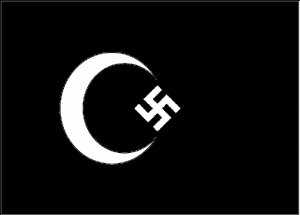
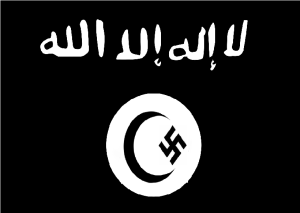
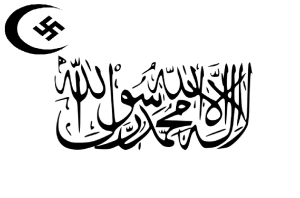
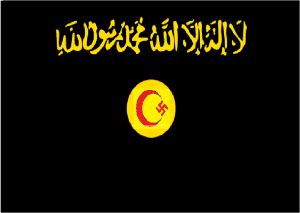
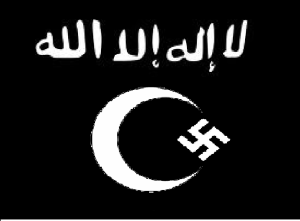
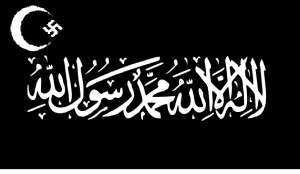
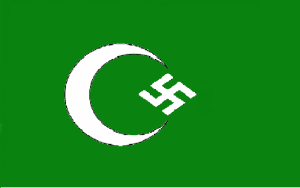
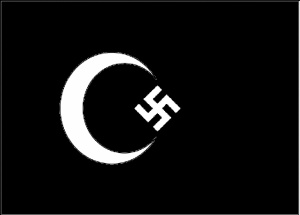
You must be logged in to post a comment.